Home
Use our global calendar of privacy events to locate an event near you.
FILTER BY
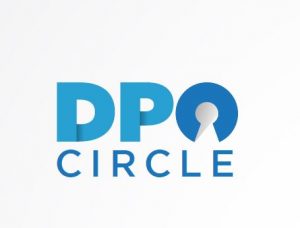
The DPO Circle gives you the opportunity to be at the forefront of the Data Protection scene. Our keynote speaker, Giovanni Buttarelli, European Data Protection Supervisor, will set the stage for the European vision on Data Protection. Receive first hand insight on the New Belgian Law by the State Secretary’s Privacy Advisor.
Don’t miss this unique opportunity to catch up with Data Protection professionals who will share their views, knowledge and case studies on the issues at hand.
This event will bring academic presentations, practical implementation, legal advices and networking meetings.
Registering for this event will guarantee a full year free membership for the DPO Circle.
Public
Data Protection Officers, Legal experts, Lawyers, Information Security, Auditors, Data Scientist & Professionals, Project Managers … aiming at getting involved in the data protection field.Sector
A cross-section of industries: IT, Bank & Insurance, Telecom, Energy, Automotive, Healthcare…

The Federal Trade Commission will host a workshop on December 12, 2017, to examine consumer injury in the context of privacy and data security.
Information about consumers has become a key input to innovative products and services. However consumers may suffer injury when information about them is misused. The workshop will address questions such as how to best characterize these injuries, how to accurately measure such injuries and their prevalence, and what factors businesses and consumers consider when evaluating the tradeoffs between providing information and potentially increasing their exposure to injuries.
To aid our analysis of these issues, the FTC seeks input. Topics of interest include the following:
- What are the qualitatively different types of injuries from privacy and data security incidents? What are some real life examples of these types of informational injury to consumers and to businesses?
- What frameworks might we use to assess these different injuries? How do we quantify injuries? How might frameworks treat past, current, and potential future outcomes in quantifying injury? How might frameworks differ for different types of injury?
- How do businesses evaluate the benefits, costs, and risks of collecting and using information in light of potential injuries? How do they make tradeoffs? How do they assess the risks of different kinds of data breach? What market and legal incentives do they face, and how do these incentives affect their decisions?
- How do consumers perceive and evaluate the benefits, costs, and risks of sharing information in light of potential injuries? What obstacles do they face in conducting such an evaluation? How do they evaluate tradeoffs?
You can find a full list of questions and information about how to submit comments in the detailed public notice about the workshop. The deadline for submitting comments is October 27, 2017.
The workshop, which is free and open to the public, will be at the FTC’s Constitution Center, 400 7th St., SW, Washington, DC. It will be webcast live on the FTC’s website. Registration information, an agenda, directions to the FTC’s Constitution Center building, and a list of speakers will be available in the near future on the event webpage.
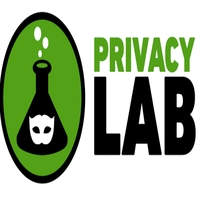
Please join us Tuesday, December 12th 6-8pm for Privacy Lab!
Uber is hosting (with light refreshments!) at their 555 Market Street, San Francisco location (note: not at HQ).
Our speaker is Marcel van der Heijden.
His topic is: Pseudonymization vs Anonymization: What’s the difference and why it matter?
The general concept of anonymization is often used pretty loosely to describe a whole range of methods of transforming data. This approach often means creating a new data set to eliminate identifying information in the data set for the purpose of making re-identification of individuals impossible. Many examples from research and, more worryingly, “in the wild”, exist of presumed anonymized data being not-so-anonymous and sometime trivially re-identifiable.
The upcoming privacy regulation GDPR specifically distinguishes between pseudonymization and anonymization. This is important as pseudonymized data remain entirely subject to GDPR regulations, where anonymized data is exempt of GDPR.
We will outline the difference between pseudonymization and anonymization – both technically and from a legal point of view – and describe a few use cases where this difference has a huge impact.
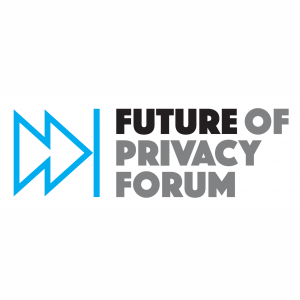
The Smart Cities and Open Data movements promise to use data to spark civic innovation and engagement, promote inclusivity, and transform modern communities. At the same time, advances in sensor technology, re-identification science, and Big Data analytics have challenged cities and their partners to construct effective safeguards for the collection, use, sharing, and disposal of personal information. As cities harness more data than ever, how can we assess the risks and opportunities of new technologies and data flows while preserving public trust and individual privacy? In this roundtable style discussion, come hear from City CIOs, academic leaders, and industry experts developing emerging frameworks for addressing privacy challenges in open data and examine the opportunities and challenges of new urban instrumentation.

18 December 2017
12:00 p.m. EST
Join IEEE Standards Association (IEEE-SA) on 18 December 2017 at 12:00 p.m. EST for the third in a series of three free online events focused on Policy for Artificial Intelligence.
Policy for Artificial Intelligence: The Power of Imaginaries, will feature Konstantinos Karachalios (Managing Director, IEEE-SA; Member of IEEE Management Council), Nicolas Miailhe (Co-Founder and President, The Future Society; Harvard Kennedy School, Senior Visiting Fellow, Program on Science Technology and Society and member, the IEEE Global Initiative on Ethics of Autonomous and Intelligent Systems and Cyrus Hodes, Director of the AI Initiative with The Future Society at Harvard Kennedy School. John C. Havens, Executive Director, The IEEE Global Initiative on Ethics of Autonomous and Intelligent Systems, will moderate.
Imaginaries are, “collectively held, institutionally stabilized, and publicly performed visions of a desirable future, animated by shared understandings of forms of social life and social order attainable through, and supportive of, advances in science and technology” (Jasanoff & Kim; from Dreamscapes of Modernity).
If we want to have a positive future in regards to AI, we have to critically reflect upon our current imaginary in order to “imagine” a new one, and the policy and principles we need to attain it.

SDW has become one of the world’s largest gathering of advanced security document and identity solutions experts and the SDW conference delivers an unparalleled opportunity for topical, insightful non-commercial information exchange.
SDW 2018 Call for Speakers
Share your experience and knowledge with government and industry colleagues at the premier event in the secure document and government identity calendar – SDW 2018.
We would be very pleased to hear from you if you have the expertise and experience to join us on stage to discuss next-generation government identity and secure document solutions and their application in a rapidly changing world.
To submit a speech proposal, please download the application form and send it to Conference Chair, Mark Lockie, by Friday 15 December 2017.
Technological trends – The shape of things to come
As challenges, such as terrorism, organised crime, forced migration, identity fraud and social exclusion, continue to challenge policymakers across the world, the identity industry must adapt and evolve.
While this process requires many different elements, leading contributors to SDW have cited the critical role that new technologies will play. Examples are biometrics, mobile devices, new credential substrates and security features, as well as the need to work with both physical and digital identities, and the development of technologies such as blockchain.
In a series of sessions, we will examine these technology trends and aim to establish how they will shape our industry over the coming years.
Design & manufacture: Best practice
Whether organisations are involved in the design or manufacture of new credentials or next-generation identity management systems, best practice plays an invaluable role in raising the bar to limit counterfeiting and fraud.
This set of sessions will take an in-depth view at the tools, techniques, materials and processes that enhance security and further improve quality – ensuring that citizens are able – both on-line and off-line – to prove their identity with ease, while making fraud detection easier for authorities.
Bringing next-generation government identity solutions to life
Secure identity credentials have been developed over decades and today are used by more people than ever before for an increasing number of applications – from proving their identity, to international travel, and accessing government services.
SDW 2018 will have a series of sessions exploring the many existing and emerging areas where document security and identity management play a critical role in enabling citizens to live and work in a country, vote, drive, travel and access an increasing number of services, both public and private.
Staying ahead of the fraud curve
As we continue to innovate and design new ways of developing secure documents and managing identities, government and industry need to remain vigilant and stay ahead of the fraud curve to ensure their designs and processes are not vulnerable to fraud or misuse. Equally, action to detect and disrupt fraud needs to be robust.
During the past decade, instances of simplistic document fraud have been on the decline, but have been replaced by a sharp increase in identity fraud. Actors and organisations involved in terrorism and organised crime will continue to exploit design and system vulnerabilities for their benefit and remain highly motivated and well-resourced to achieve their aims.
In this series of sessions, SDW will take a purposeful look at the drivers of document and identity fraud, the systems, approaches and tools available to prevent and detect it, and explore what government and industry can do to further deter and reduce the possibility of fraudulent documents or identities being used by those who seek to do harm to our societies.
Driving global interoperability
As increasing numbers of people travel to more destinations than ever before, now, more than ever, interoperability is critical to our shared success. Secure documents need to be readable in multiple locations by multiple actors. Systems need to interface with other systems. And end-users should be able to use their identity or credentials in new and innovative ways.
Vitally important standards, such as ICAO 9303, provide a powerful platform on which the foundations of global interoperability can be built.
These sessions will examine the latest standards and recommended practices and take a look over the horizon to see where new standards may be needed to expand citizen services and drive interoperability across the globe.
Views from the top – State of the identity industry*
The document security and identity management sector is comprised of a myriad of stakeholders: from government departments responsible for issuing identity documents, to secure printers and specialist suppliers who manufacture security features, personalise documents, secure distribution and more…
As market dynamics and competitive forces evolve, industry adapts and changes. So what are the factors affecting our industry today? What challenges face those who set the strategy and direction for their companies?
This session is designed to showcase the thinking of the leaders in our industry. We will take a close look at what’s on the horizon, where opportunities or challenges are occurring, and what new skills and capabilities need to be developed to be successful in both today’s industry and tomorrow’s uncertain world.
* Board level applicants only
Identity at the edge
For any industry to thrive, there has to be a wealth of new ideas bubbling up below the surface. Research and development – whether by academia, government or industry – is key to provide the space for original thinking, to challenge today’s perceptions, and to shine a possible light on the way forward.
This session will look at identity at the edge, where the edge is a frontier of original thought into new technologies, systems, processes and design.
Grand designs
Some projects go beyond the status quo to deliver a truly ground-breaking document design or government identity based system – from border management systems to innovative citizen ID services. This is one of SDW’s best attended sessions, and is an opportunity for your project to be showcased at the highest level.
DocEx 2018*
A unique opportunity for in-depth knowledge exchange between government officials, ranging from document designers and examination experts to issuance authorities, border/immigration agencies and law enforcement.
* Applications from government only

New healthcare data analytics, business practices, and technologies such as wearable devices and health apps are posing novel regulatory challenges for protecting sensitive health information. Professor Nicolas Terry, Indiana University, will explore the complex policy choices facing the healthcare industry in this “second machine age” and propose a new governance model for the healthcare sector attuned to the issues that technologically-mediated healthcare and its stakeholders are facing.

PrivacyCafés are open workshops in which we teach you how to protect your digital privacy when using the internet. The workshop is open to both total beginners and advanced users.
This PrivacyCafé will be mainly held in English with only limited possibility to translate into Dutch or French.
Where? Mundo B, Rue d’Edimbourg 26, 1050 Brussels
When? Tuesday, 16 January 2018, 19 – 22h
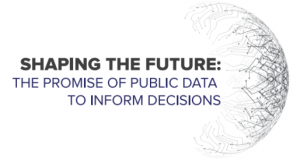
The 2018 APDU Annual Conference (to be held on July 17-18, 2018 in Arlington, VA) invites APDU members and friends to submit proposals for presentations and panels related to our theme, “Shaping the Future: The Promise of Public Data to Inform Public & Private Sector Decisions”. The Conference will bring together data users and data producers for conversations and presentations across a wide variety of data and statistical topics, including but not limited to:
- Statistical policy
- Data collection, production, and delivery
- Emerging data issues
- New data sources and tools
- Relevant data dissemination technologies
We invite proposals on any topic relating to public data, whether based on a particular project, data practice, or formal paper. In keeping with the theme of the conference, our interest is in how changes in public data, research techniques, and other advances will impact the way decisions are made in both the public and private sectors. For the 2018 Conference, we are interested in presentations focused on:
Navigating the Public Data Landscape
- Identifying the Data You Need
- Preserving Data Privacy and Security
- Responsibly Sharing and Disseminating Data
Realizing the Potential of Public Data
- Linking Datasets
- Selecting Sound Methods for Analysis
- Developing Effective Data Visualizations
- Leveraging Administrative Data
Deploying Data to Inform Decisions
- Using Public Data in the Private Sector
- Using Public Data in the State, Local, and Nonprofit Sector
- Informing Evidence-Based Policymaking
Submissions may be for a single presentation or a full panel (three presenters, plus a moderator). APDU may accept portions of a panel proposal to combine with other presenters. Submissions will be evaluated on the quality of work, relevance to APDU Conference attendees, uniqueness of topic and presenter, and thematic fit.
Please submit the proposal document available at this link to Brendan Buff at [email protected]. Please submit proposals by Wednesday, January 31, 2018. Proposers will be notified of our decision by February 28, 2018.
IMPORTANT DATES
Deadline:
January 31, 2018
Notification Date:
February 28, 2018
Registration Opens:
March 1, 2018
APDU Annual Conference:
July 17-18, 2018
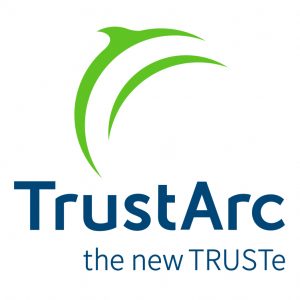
| Practical advice on what marketing activities can and can’t be done.
Marketing is an area that will be highly impacted by changes required under the GDPR, but there is a lack of clear guidance as to what the compliance requirements mean in practice. Do you need consent for everything? How can direct marketing practices comply with the GDPR and still meet business objectives? This webinar will support privacy and marketing teams by providing practical advice on what marketing activities can and cannot be done. Webinar Speakers James Koons |
